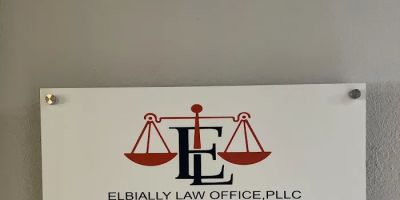Lawyers Near MeTexasCollin CountyPlanoNorth Central Expressway
500 N Central Expy # 350, Plano, TX 75074, USA
This introduction details the vital, impartial role of the Chapter 13 Standing Trustee in Plano, TX, specifically referencing Carey D. Ebert. Located at 500 N Central Expy #350, the Trustee's office facilitates the administration of Chapter 13 bankruptcy cases, including evaluating repayment plans, collecting and disbursing payments, and overseeing compliance. It clarifies that the Trustee serves as an administrator, not a lawyer providing legal advice, and outlines how debtors and creditors interact with this crucial component of the bankruptcy process.
When individuals in financial distress consider filing for bankruptcy, particularly under Chapter 13 of the U.S. Bankruptcy Code, they will inevitably interact with a crucial, impartial figure known as the Chapter 13 Standing Trustee. In Plano, Texas, serving the Eastern District of Texas (specifically the Sherman/Plano and Texarkana divisions), this role is currently fulfilled by Carey D. Ebert. Her office is located at 500 N Central Expy #350, Plano, TX 75074, USA. The primary phone number for the Trustee's office is (972) 943-2580, which also serves as the mobile contact, +1 972-943-2580. Phone hours are typically Monday through Friday, from 8:30 AM to 4:00 PM.
It is vital for local users searching under the "Lawyers Near Me" category to understand that a Chapter 13 Standing Trustee, such as Carey D. Ebert, is not a legal representative who provides advice or advocacy for debtors or creditors. Instead, the Trustee is an impartial administrator appointed by the bankruptcy court to oversee and facilitate the Chapter 13 bankruptcy process. Their duties are statutory and fiduciary, ensuring that the bankruptcy system operates fairly and efficiently for all parties involved.
The core services and duties of a Chapter 13 Standing Trustee include:
The environment of the Chapter 13 Standing Trustee's office, while not a typical client-facing law firm, is structured for efficient administrative processing of numerous bankruptcy cases. Located in a professional building in Plano, the office handles a significant volume of financial data and communications. It is designed to be a secure and organized hub for receiving payments, processing claims, and managing the flow of information between debtors, creditors, their attorneys, and the bankruptcy court. The office likely features dedicated staff for different functions, such as pre-confirmation supervision, claims analysis, and disbursement processing, to manage the intricate financial and legal aspects of thousands of cases.
Key features of a Chapter 13 Standing Trustee's operations, and specifically relevant to Carey D. Ebert's office, include:
Promotional information for a Chapter 13 Standing Trustee primarily revolves around their administrative efficiency, commitment to the integrity of the bankruptcy process, and accessibility for authorized parties. Unlike a private law firm that advertises for clients, the Trustee's role is a fixed appointment by the U.S. Trustee Program (part of the Department of Justice). Therefore, their "promotion" is more about public information and professional standards. The website, such as planoch13.com for Carey D. Ebert, serves as a central hub for information for debtors, creditors, and attorneys. It often includes:
The existence of a dedicated website and clear contact channels (including the provided phone numbers) highlights the Trustee's commitment to facilitating the bankruptcy process effectively. For local users searching "Lawyers Near Me" who are involved in a Chapter 13 bankruptcy case in Plano, understanding the Trustee's role is paramount. They are not a lawyer to be hired for legal advice or representation; rather, they are a vital administrative component of the bankruptcy court system responsible for overseeing the debtor's repayment plan and ensuring its proper execution. Any legal questions or needs related to a Chapter 13 case should always be directed to one's own bankruptcy attorney.
In summary, the Chapter 13 Standing Trustee, specifically Carey D. Ebert's office at 500 N Central Expy #350, Plano, TX, operates as an essential, impartial administrative entity within the U.S. bankruptcy system. While not a "lawyer for hire," their services are indispensable for the functioning of Chapter 13 cases in the Eastern District of Texas. Their primary function is to administer repayment plans, collect and disburse funds, and ensure compliance with bankruptcy laws. Features include administrative efficiency, transparency through dedicated online resources, and a strict adherence to their fiduciary duties, all designed to facilitate a smooth and equitable bankruptcy process for debtors and creditors alike.
500 N Central Expy # 350, Plano, TX 75074, USA

500 N Central Expy, Plano, TX 75074, USA

500 N Central Expy Suite 500S, Plano, TX 75074, USA

500 N Central Expy Suite 500, Plano, TX 75074, USA

660 Central Expy #101, Plano, TX 75074, USA

660 N Central Expy #102, Plano, TX 75074, USA

660 N Central Expy suite 290, Plano, TX 75074, USA

101 W Renner Rd Ste 190, Richardson, TX 75082, USA

2929 N Central Expy Suite 125, Richardson, TX 75080, USA

704 E 15th St UNIT 204, Plano, TX 75074, USA

704 E 15th St UNIT 203, Plano, TX 75074, USA

550 E 15th St Suite 200, Plano, TX 75074, USA

802 E 15th St, Plano, TX 75074, USA
